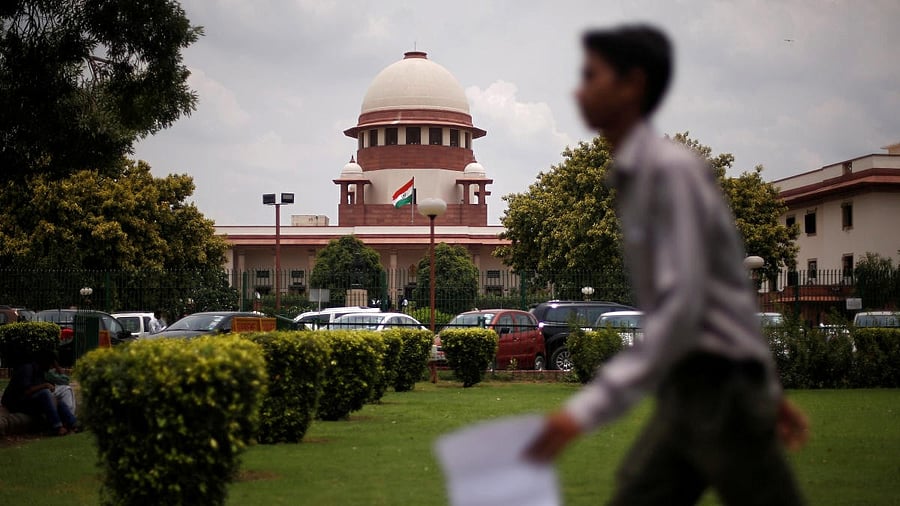
Supreme Court of India.
Credit: Reuters Photo
New Delhi: The Supreme Court of India has said mere allegations of harassment are not enough to invoke charges of abetment of suicide unless the actions by the accused were so compelling that the victim perceived no alternative but to take their own life.
A bench of Justices Vikram Nath and Prasanna B Varale discharged a man and his parents charged with abetment of suicide of his wife, finding no positive acts or mens rea on their part.
“For a conviction under Section 306 IPC (abetment of suicide), there must be clear evidence of direct or indirect acts of incitement to commit suicide. The cause of suicide, especially in the context of abetment, involves complex attributes of human behavior and reactions, requiring the court to rely on cogent and convincing proof of the accused’s role in instigating the act,” the court said, in its judgment on Tuesday.
It emphasised the prosecution must demonstrate an active or direct action by the accused that led the deceased to take his/her own life.
"The element of mens rea cannot simply be presumed or inferred; it must be evident and explicitly discernible. Without this, the foundational requirement for establishing abetment under the law is not satisfied, underscoring the necessity of a deliberate and conspicuous intent to provoke or contribute to the act of suicide," the bench said.
In such matters, the bench said the court examines whether the accused’s conduct, including provoking, urging, or tarnishing the victim’s self-esteem, created an unbearable situation.
“If the accused's actions were intended only to harass or express anger, they might not meet the threshold for abetment or investigation. Each case demands a careful evaluation of facts, considering the accused’s intent and its impact on the victim,” the bench said.
The bench said it is essential to establish that the death was a result of suicide and that the accused actively abetted its commission and this can involve instigating the victim or engaging in specific actions that facilitated the act.
“The prosecution must prove beyond doubt that the accused played a definitive role in the abetment. Without clear evidence of an active role in provoking or assisting the suicide, a conviction under Section 306 IPC cannot be sustained,” the bench said.
In the case, the court found no proximate link between the alleged facts, instances of harassment and her subsequent death by hanging. The bench said the alleged incident of selling of gold ornaments and subsequent physical and mental harassment, as alleged, occurred almost a year before the FIR was registered at the instance of the father of the deceased.
The bench said selling of gold ornaments and the same was followed by discord and harassment upon their demand, even if true, do not reflect any intention to instigate, incite or provoke the deceased to commit suicide.
“Mere harassment and such issues between the wife and her husband along with the in-laws do not appear to create a scenario where she was left with no option other than to end her life,” the bench said.
Jayedeepsinh Pravinsinh Chavda and others challenged the Gujarat High Court's order of May 9, 2024 which rejected their criminal revision application and refused to discharge them in the case related to offences under Section 306, 498A and 114 of the IPC.
The court discharged the accused of the offence of the abetment to suicide but upheld the charges for forcing the woman to cruelty.
It said appellants’ argument that the deceased had not made a single complaint for cruelty or harassment against the appellants in the 12 years of marriage cannot be sustained.
"Merely because she did not file any complaint for 12 years does not guarantee that there was no instance of cruelty or harassment," the bench said.
From a perusal of the FIR, findings of the investigating officer in the chargesheet as well as the statements of the deceased’s cousins recorded during investigation prima facie indicate that the deceased was subjected to physical as well as mental cruelty by her husband and the in-laws, the bench said.
